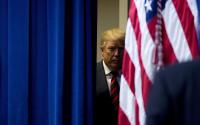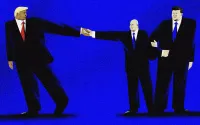8 December 2010
To listen click here: Znet
WikiLeaks founder Julian Assange has been remanded in custody by a British court over allegations of sex crimes in Sweden. He appeared at the Westminster Magistrates Court overnight where he was supported by a number of high profile figures, including veteran investigative journalist John Pilger, who offered surety of $32,000 for Mr Assange. "This case is about, number one, a person's right to justice, when they're innocent until proven guilty," Mr Pilger explains to Adam Spencer on 702 Breakfast when discussing his reasons for getting involved in the case. Mr Pilger goes further, describing the case against Mr Assange as a 'political stunt', noting, "the chief prosecutor in Sweden abandoned this case, threw it away, saw no worth in it." John Pilger spoke to Mr Assange soon after the hearing, when he was in police custody and explained he was taking the ruling in his stride... "I don't know how I would be, I would be full of trepidation, and I'm sure he was too, but he has quite a dry wit, he saw the black side of it." Mr Pilger, on the other hand, is critical of the Australian government, and Prime Minister Julia Gillard over her stance. "Gillard's statement, saying that what Wikileaks was doing in disclosing these documents was illegal - it's not illegal at all, under any laws in Australia. "That's the sort of thing that most Australians should be concerned about," he says. John Pilger first came to know the Wikileaks founder after interviewing him for a documentary called The War You Don't See. He says Julian Assange has been encouraged by the support he's received from himself and other high profile figures who signed an open letter in support of his actions. "To be at the epicentre of something like this, requires a particular fortitude, it also requires people to understand the basic issues and give their support [and] those of us who do understand, I believe, are giving that." John Pilger says he was struck by the commitment of Julian Assange when he first met him. "I think he has quite a moral commitment to this, he believes there should be an ethical dimension, a moral dimension to world affairs, that's his personal view... that came through clearly to me when I first met him."






